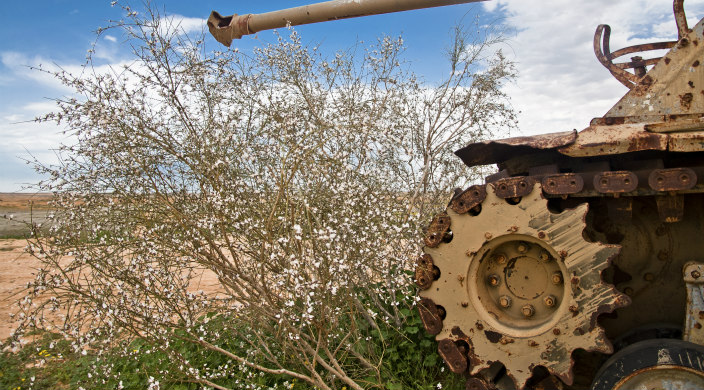
In a 1989 interview for Reform Judaism magazine, I asked Amos Oz, one of Israel’s best-known writers and peace activists, about the role of the writer in society.
“In the West,” he explained, “especially in the Anglo-Saxon tradition, writers and poets are regarded as fine and subtle entertainers at best. In the Jewish tradition, they are regarded, rightly or wrongly, as heirs of the prophets.” Because it's a conversation so relevant to today's world, I wanted to share it again now.
Reform Judaism magazine: How does that translate into modern times?
Amos Oz: Israeli writers are expected to have some kind of an answer. Israel is one of the few countries, if not the only country in the world, where a prime minister would summon a poet or writer for a late night, soul-searching tete-a-tete, asking the poet where the nation has gone wrong, admiring, adoring, and worshipping the poet’s ideas, and then ignoring them completely. Let’s not overestimate the actual influence of Israeli writers.
Would you say the nation has gone wrong?
The Six-Day War evoked a kind of euphoria in Israel itself and throughout the Jewish world: an intoxication with the power of power.
We celebrated the “Exodus” type of gentile-Jew, a Jewish John Wayne personified by our military heroes – a tough and simple kibbutznik working in the fields all day, making wild love in the evening, then picking up his machine gun and, before his day is done, dashing off to smash hostile Arabs.
This monstrous stereotype was born from the depths of Jewish self-hatred, and secret wish to resemble some of our past tormentors.
How did succeeding wars affect this self-image among Israelis?
The Yom Kippur War marked the collapse of Israel’s self- image as a dazzling success story. Second thoughts, hesitations, criticisms became legitimate and even trendy. It also marked a decline of Israel’s universal reputation in the eyes of friends and enemies alike.
What impact did the War in Lebanon have on how Israelis were viewed on the outside?
The war in Lebanon and Israel’s attempt to extinguish the intifada by force alone created not only a wave of world-wide anti-Semitism, thinly disguised as anti-Zionism, but also a “Vietnam syndrome” in Israel itself. For the first time, tens of thousands of young Israelis were asking “why?” and “what for?” Several dozen, for the first time in our short history, preferred to go to jail rather than police the West Bank or Gaza.
This erosion of the national consensus over the use of power, this awesome split presents a more dangerous threat to the future of Israel than the PLO, Arab armies, and a hostile world combined.
Why is disunity so dangerous?
Israel’s basic integrity is at stake. National consensus, an abstract and elusive phenomenon tends to behave much like a physical substance: when stretched it gets thinner, when over stretched it tears and breaks.
What would you advise is the best course of action at this stage of the Israeli-Palestinian conflict?
I believe that Israel ought to return to the original Zionist proposition: peace for peace, security for security, recognition for recognition, nationhood for nationhood. Israel ought to stick to this proposition for as long as it takes. This may not bring about peace now, but it will be vital and redeeming for the moral integrity of Israel, for its wounded national consensus, for its damaged international position.
It might even start a peace process.
This article was adapted from an interview with Amos Oz and his address to the URJ Biennial in 1989.
Related Posts

Staying Connected with Our Loved Ones Even When we Disagree

How the Israel-Hamas War Disproportionately Affects Israelis with Disabilities


